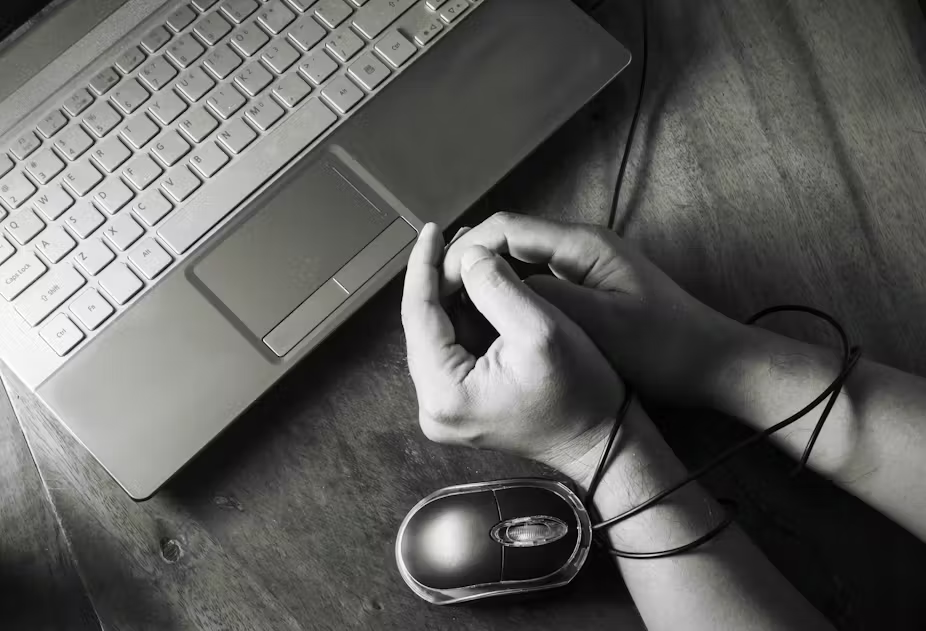Below is the list of signs that may indicate you have an internet addiction:

Using the internet to escape problems or relief stress in not a healthy copy mechanism.
In today’s digital age, the internet is an integral part of our lives. From work to entertainment to social interactions, much of what we do revolves around the internet. However, for some, the internet becomes more than just a tool; it becomes and addiction. Internet addiction is a behaviour disorder characterized by excessive and compulsive use of internet, leading to significant impairment or distress in daily life. Recognising this sign is a crucial addressing and managing the internet addiction effectively . This article lists 10 signs of internet addiction you must look out for.
10 Signs You Might Have an Internet Addiction
- Neglecting Daily Responsibilities
One of the most telling sign of internet addiction is neglecting daily responsibilities. This cloud include missing deadlines at work, failing the complete household chores, or neglecting personal hygiene. If you find your internet use is interfering with your ability to fill fill your responsibilities, it might be a sign of addiction.
- Increasing Time Spent Online
If you notice that you are spending more and more time online, this could be sign of internet addiction. What starts as an hour of browsing can quickly escalate to several hours. You might find yourself staying up late into the night, unable to log off, even when you have other obligations.
- Withdrawal Symptoms
Just like other addictions, internet addiction can lead to withdrawal symptoms. These might include feelings of irritability, restlessness, or depression when you are unable to access the internet. If you find yourself feeling anxious are upset when you are offline, this is red flag.
- Using the Internet to Escape Problems
Using the internet as a coping mechanism to forget about problems or relieve stress is not healthy. If you turn to the internet to escape from your issues or to avoid dealing with stress ,this could be indicative of a Deeper problem.
- Loss of Interest in Offline Activities
Another sign of internet addiction is concern losing interest in activities that you once enjoyed offline. Whether it’s spending time with friends and family, engaging in hobbies, or participating in physical activities, if you find yourself choosing the internet over real-life interactions, it’s a cause of concern.
- Lying About Internet Use
If you feel the need to lie about how much time you spend online or what you are doing on the Internet, this is a significant warning sign. Deception about internet use often indicates that you are aware there is a problem but you are not ready to confront it.
- Interpersonal Problem
Excessive internet use can lead to a problem in your relationship. You my find that you are internet habit are causing conflict with your family, friends, or colleagues. This could be due to neglecting this relationship or becoming defensive about your internet use.
- Decline in Academic are Work Performance
Internet addiction can have a negative impact on your performance at school or work. If you notice a decline in your grades, productivity, or overall work quality due to time spent online, it’s a clear sign that the internet is taking priority over important aspects of your life.
- Inability to Cut Back
Have you try to reduce your internet use but wounded difficult or impossible to do so? An inability to cut back on internet time, despite recognising its negative impact, is a hallmark of addiction. This loss of control is a key indicator that professional help might be needed.
- Preoccupation with the Internet
Constantly thinking about internet, even when you are not online, is another sign of addiction. If you are preoccupied with thoughts about your next online session or feel an intense urge to get back online, it might be time to access your internet habits more critically.
Table of Contents
Addressing Internet Addiction
Recognising these signs is the first step towards addressing internet addiction. If you identify with several of the signs, it’s important to take action. Here are some steps you can take to manage internet addiction:
- Set Clear Boundaries: Establish specific times for internet use and stick to them. Used timers or apps that limit your online time.
- Seek Professional Help: Consider consulting a therapist or counselor who specialize in addiction. Cognitive-Behaviour Therapy (CBT) can be particularly effective.
- Engage in Offline Activities: Reconnect with hobbies and activities that don’t involve the internet. Physical exercise, reading, and spending time with loved ones can provide healthy alternatives.
- Mindfulness and Relaxation Techniques: Practices like meditation and deep breathing can help reduce the stress and anxiety that might be driving your internet use.
- Join Support Groups: There are numerous support groups of internet addiction where you can share experience and strategies with other facing similar challenges.
Internet addiction is a serious issue that can impact every aspect of your life. By being aware of the signs and taking proactive steps to address the problem, you can regain control and ensure that the internet remains a useful tool rather than a detrimental habit. If you find yourself or someone you know struggling with internet addiction, don’t hesitate to seek help. With the right support and strategies, it is possible to overcome this addiction and lead a balanced, fulfilling life.
Disclaimer: The information provided here is a general purpose only and does not replace professional medical advice. Always consult a qualified specialist or a doctor for more detail information and guidance.
TAGS: Internet Addiction, Steps you can take to manage internet addiction
